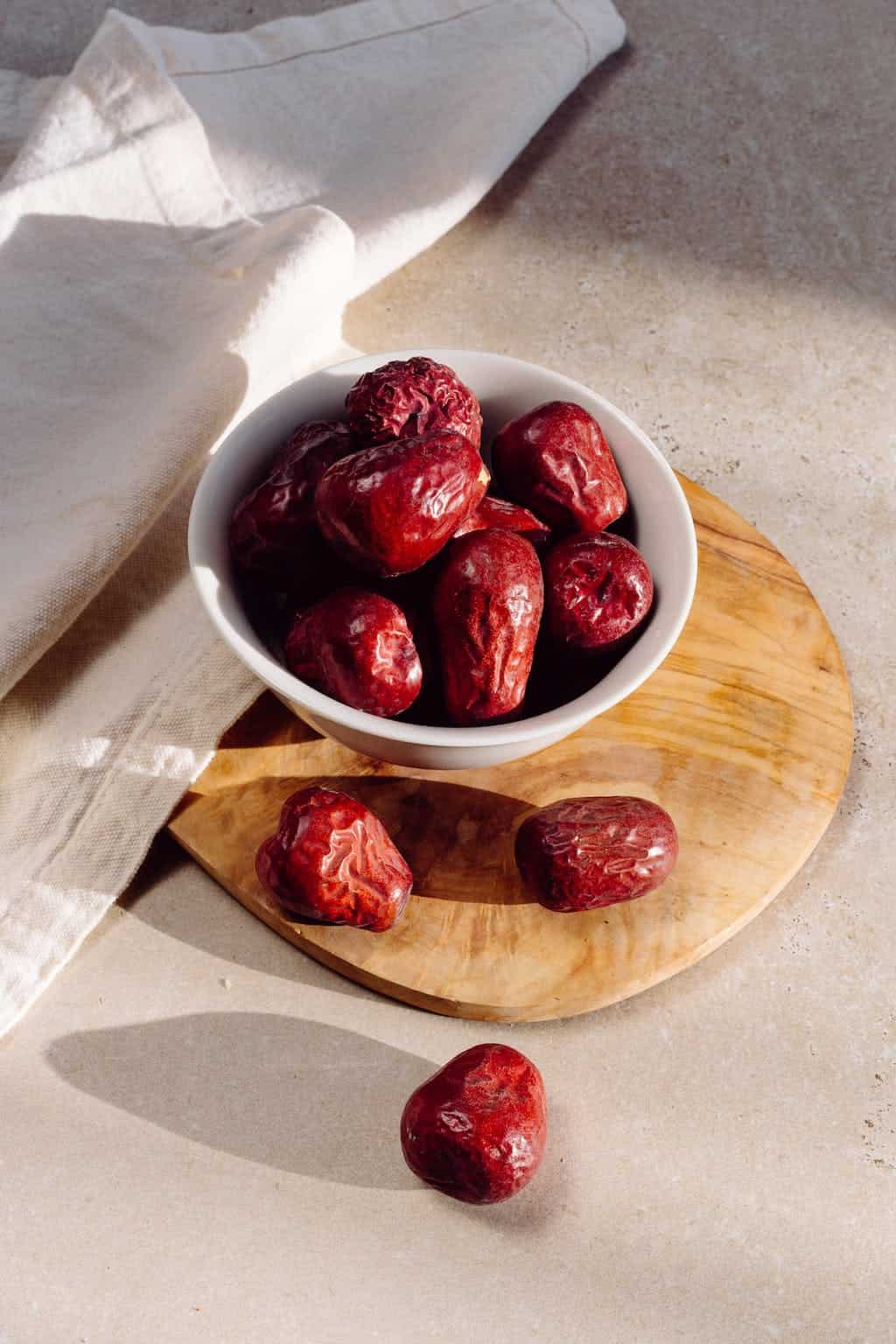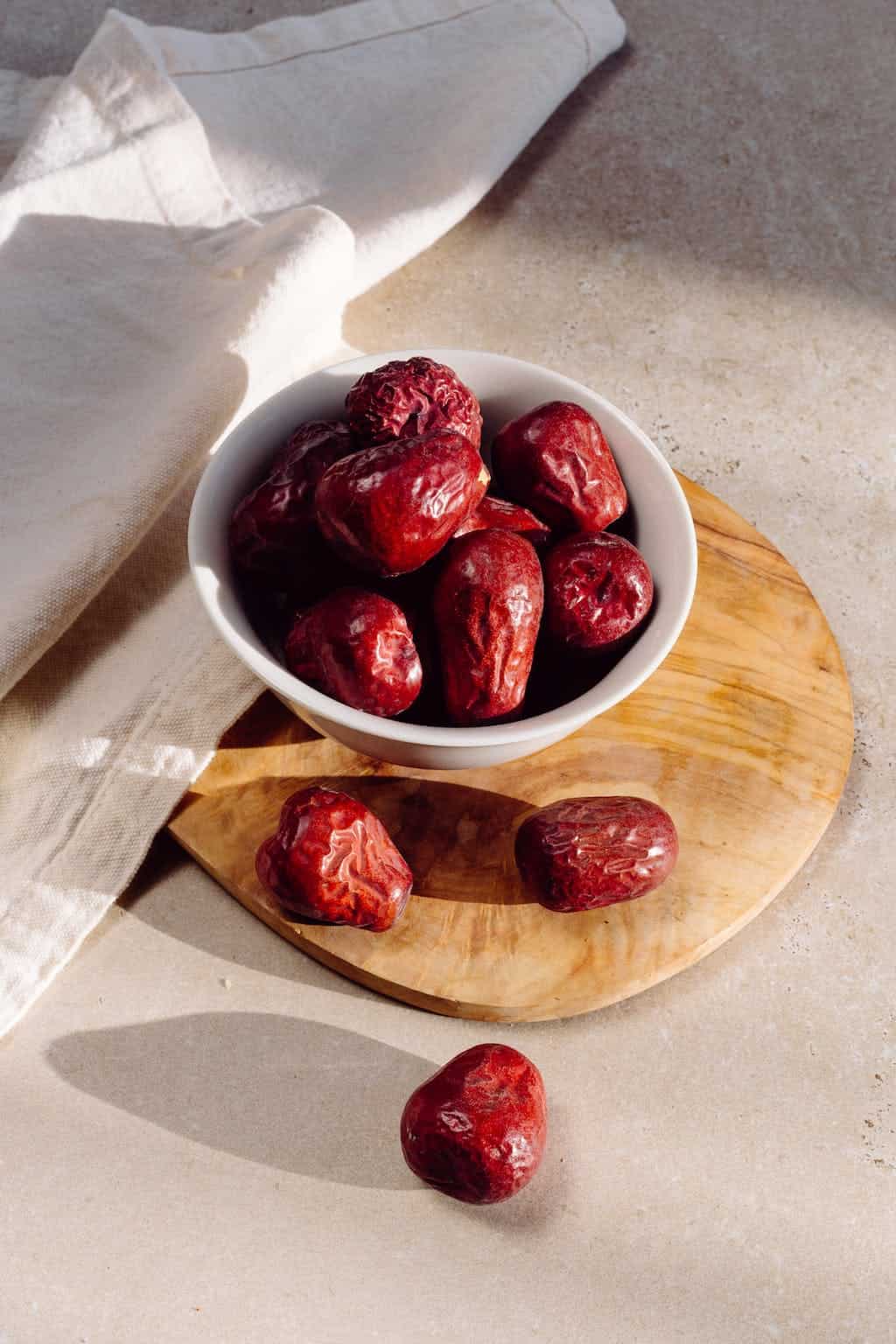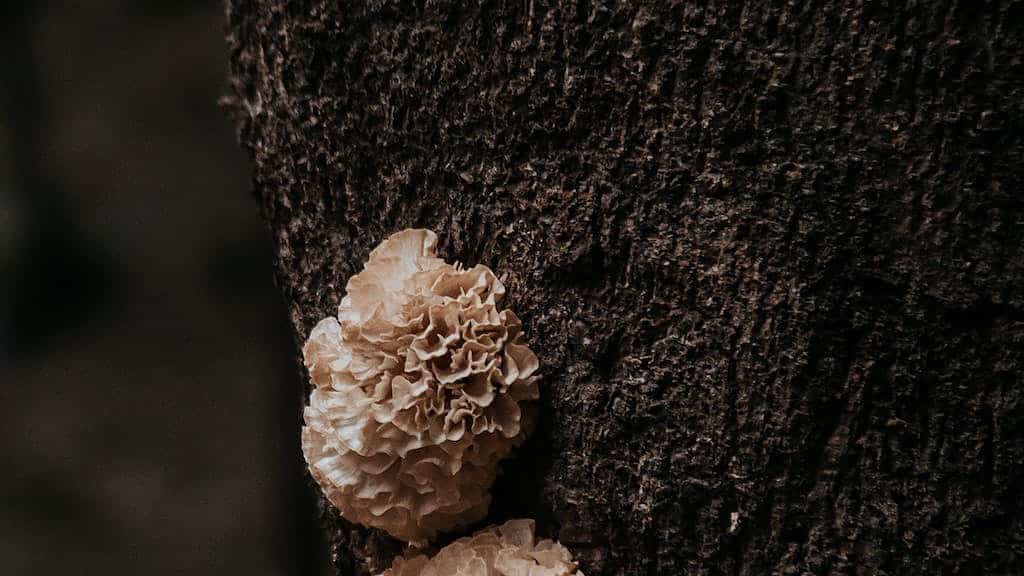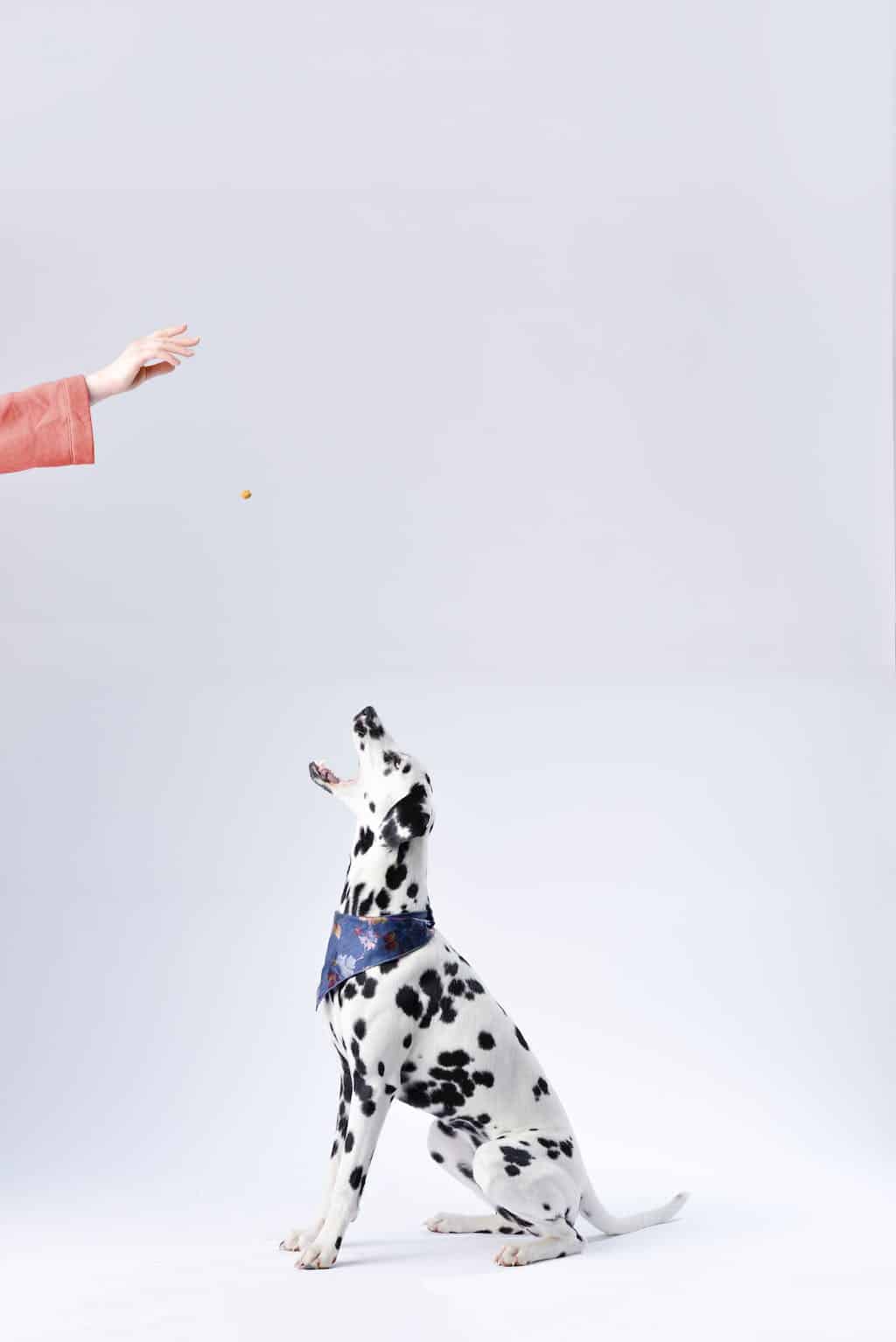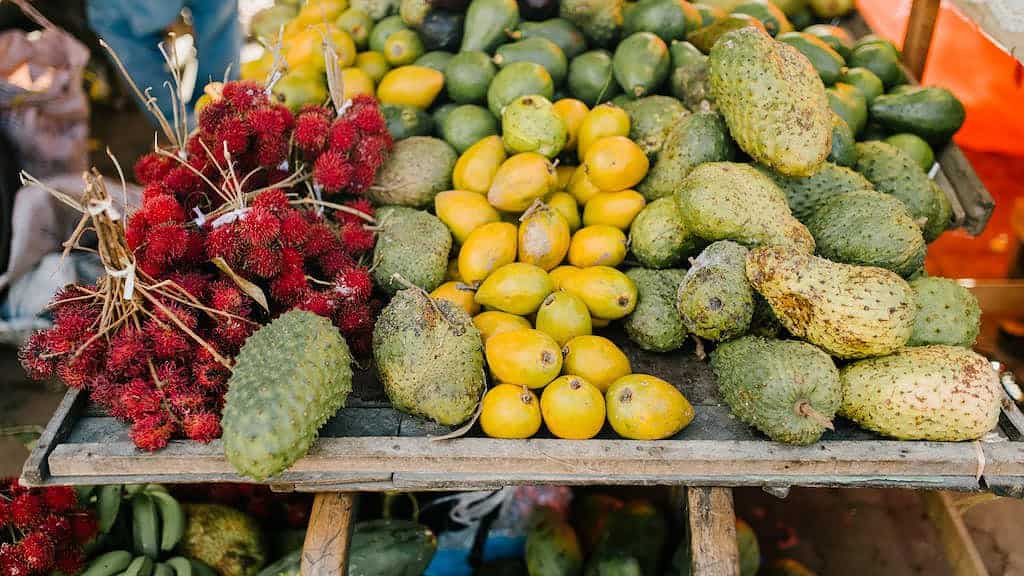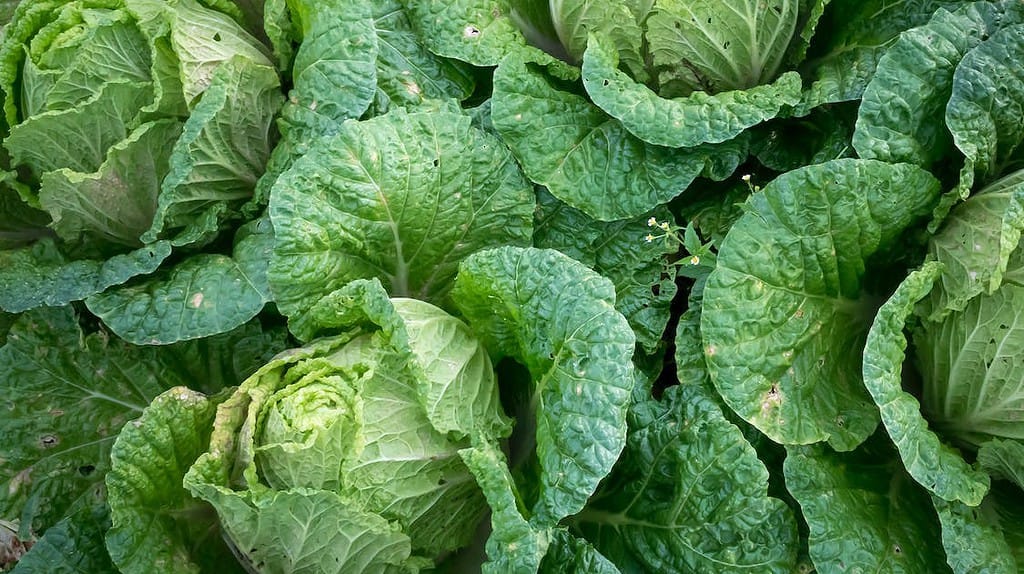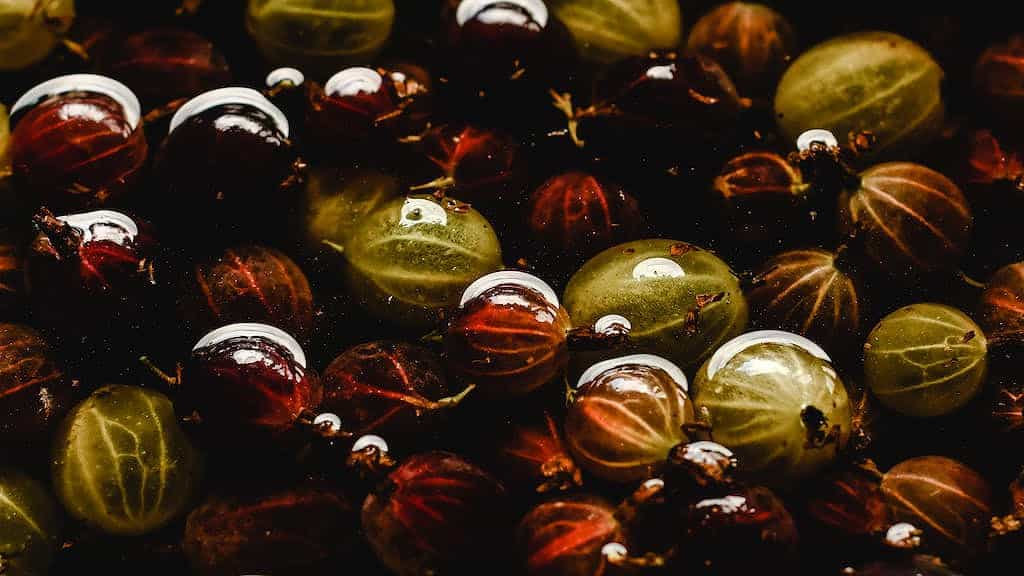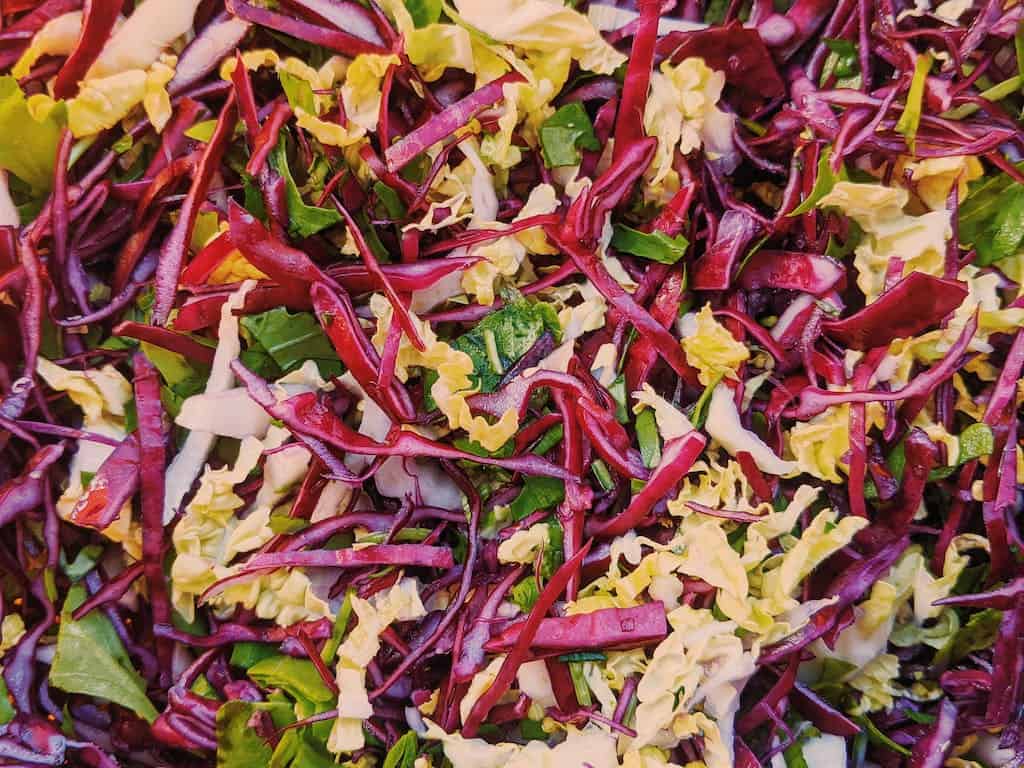Key Takeaways
- Dogs can safely consume jujube fruits in moderate amounts.
- Jujube fruits are rich in vital nutrients such as vitamin C, antioxidants, and fiber.
- Ensure you remove the pit or seed from the jujube fruit before feeding it to your dog.
- Introduce jujube to your dog’s diet gradually to avoid digestive issues or allergic reactions.
- Monitor your dog for any signs of discomfort or adverse reactions after consuming jujube.
- Consult with your veterinarian before introducing any new food to your dog’s diet.
- Avoid feeding your dog excessively sugary or artificially flavored jujube products.
- Remember that jujube should only be a small part of a balanced and nutritious diet for your dog.
Summary
Can dogs eat jujube? Yes, dogs can safely consume jujube fruits, but it’s vital to remove the pit, as it can pose a choking hazard. However, there is more to know about feeding jujubes to your furry friend, such as the potential benefits and precautions. Exploring the rest of the article will provide a comprehensive understanding of jujubes’ nutritional value, potential health benefits, and any risks associated with feeding them to dogs.

Are Jujubes Safe for Dogs to Eat?
When it comes to feeding jujubes to your furry friend, caution should be exercised. While jujubes are generally safe for human consumption, they may not have the same effect on dogs. The fruit itself is not toxic to dogs, but it can pose several risks. Jujubes can cause gastrointestinal discomfort and lead to upset stomach, vomiting, or diarrhea. Additionally, the pits or seeds inside jujubes can be a choking hazard or cause blockages in a dog’s digestive system.
Potential Benefits of Feeding Jujubes to Dogs
Despite the risks, jujubes do provide some benefits when fed to dogs in moderation. Jujubes are packed with essential vitamins and minerals such as vitamin C, potassium, and calcium. These nutrients can contribute to a strong immune system, healthy bones and teeth, and overall wellbeing for your dog. However, it is crucial to consult with a veterinarian before incorporating jujubes into your dog’s diet to ensure it aligns with their specific dietary needs and any pre-existing health conditions.
Precautions for Feeding Dogs Jujubes
Prior to feeding your dog any jujubes, it is essential to take certain precautions. Always remove the seeds or pits before offering jujubes to your dog to avoid any potential choking hazards or digestive issues. Additionally, start with a small amount to see how your dog’s system reacts to it. Monitor your dog closely for any signs of discomfort or adverse reactions after introducing jujubes into their diet. If any negative symptoms occur, discontinue feeding jujubes and consult with a veterinarian.
Healthier Alternatives to Jujubes for Dogs
If you are looking for alternative fruits that are safe and healthy for dogs, some options include apples, blueberries, and watermelon. These fruits are rich in nutrients and generally well-tolerated by dogs. However, always remember to remove seeds, pits, or any potentially harmful parts before feeding them to your furry friend. Additionally, it is crucial to introduce new foods gradually and in moderation to prevent stomach upset.
When to Avoid Feeding Jujubes to Dogs
Avoid feeding jujubes to dogs with certain health conditions, such as diabetes or obesity. Jujubes contain natural sugars, so consuming excessive amounts can cause a spike in blood sugar levels, leading to potential complications for dogs with diabetes. Moreover, jujubes are not calorie-free and should be given sparingly to avoid weight gain in overweight or obese dogs. Consulting with a veterinarian before introducing jujubes into your dog’s diet can help identify any potential risks based on their individual health profile.
Quick Recap
While jujubes are not toxic to dogs, precautions should be taken when considering feeding them to your furry companion. It is best to consult with a veterinarian about the suitability of jujubes for your dog’s specific dietary needs and health conditions. Remember to remove seeds or pits and start with small portions to monitor any adverse reactions. If unsure, opt for other dog-friendly fruits that are less likely to cause digestive issues or harm. Prioritizing your dog’s health and well-being is crucial when deciding what foods to incorporate into their diet.
Recipes and Alternatives to jujube for dogs
Dogs should not eat jujube as it can be harmful to their health. Instead, you can try feeding them other healthy and dog-friendly foods. Here are some alternatives:
- Carrots: A delicious and nutritious treat for dogs, carrots are high in vitamins and low in calories.
- Apples: Rich in fiber and vitamins, apples can be given to dogs as long as the seeds and core are removed.
- Pumpkin: An excellent source of fiber, pumpkin can help with digestion and is often enjoyed by dogs.
- Peanut Butter: Dogs love the taste of peanut butter, and it is a good source of protein and healthy fats.
Frequently Asked Questions: Can Dogs Eat Jujube?
Q: What are jujubes?
A: Jujubes, also known as Chinese dates or red dates, are sweet and chewy fruits that come from the jujube tree (Ziziphus jujuba). They are commonly found in Asian countries and are often used in culinary preparations due to their unique taste.
Q: Can dogs eat jujube?
A: Yes, dogs can eat jujube, but in moderation.
Q: Are jujubes safe for dogs?
A: Jujubes are generally safe for dogs to consume in small quantities. However, it is important to remove the pit or seed before offering it to your dog as it could pose a choking hazard.
Q: What are the potential health benefits of jujubes for dogs?
A: Jujubes contain vitamins, minerals, and antioxidants that can offer some health benefits for dogs. They may support a healthy immune system, aid digestion, and provide a natural source of energy.
Q: Can jujubes be harmful to dogs?
A: While jujubes are generally safe for dogs, feeding them excessive amounts could potentially lead to digestive issues such as diarrhea or upset stomach. Additionally, if your dog has any pre-existing health conditions or sensitivities, it is always recommended to consult with a veterinarian before introducing new foods into their diet.
Q: How should jujubes be prepared for dogs?
A: Before offering jujubes to your dog, ensure they are ripe and thoroughly washed to remove any dirt or residues. Remove the pit or seed as it can pose a choking hazard. It is advisable to cut the jujube into small, bite-sized pieces to make it easier for your dog to eat and digest.
Q: How much jujube can I feed my dog?
A: It is best to offer jujubes as an occasional treat or snack rather than a regular part of your dog’s diet. As every dog is different, it is essential to consider your dog’s size, weight, and overall health. Start by introducing a small amount and monitor how your dog reacts. If there are no adverse effects, you can gradually increase the quantity, but always in moderation.
Q: Can all dogs eat jujubes?
A: While jujubes are generally safe for most dogs, some may have individual sensitivities or allergies. If you are unsure, it is recommended to consult with your veterinarian before introducing jujubes or any new food into your dog’s diet. They can provide personalized advice based on your dog’s specific needs.
Q: Are there any alternatives to jujubes for dogs?
A: If you are looking for alternative fruits that are safe and healthy for dogs to enjoy, you can try offering small pieces of apples, bananas, blueberries, or strawberries. Always remember to remove any pits, seeds, or potential choking hazards before feeding these fruits to your furry friend.
Conclusion
The question of whether dogs can eat jujube is a complex one. While jujube itself is not toxic to dogs and can be consumed in small quantities, it is important to exercise caution when feeding any new food to your furry friend. Some dogs may have allergies or sensitivities to jujube, which can cause digestive issues or other health problems. Additionally, the pit of the jujube can pose a choking hazard or cause intestinal blockages. It is always advisable to consult with a veterinarian before introducing any new food into your dog’s diet. When it comes to jujube, moderation is key to ensure the well-being and safety of your beloved pet.
📚 Sources:
